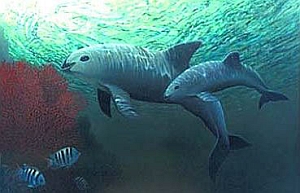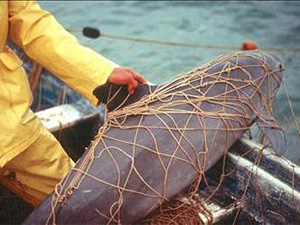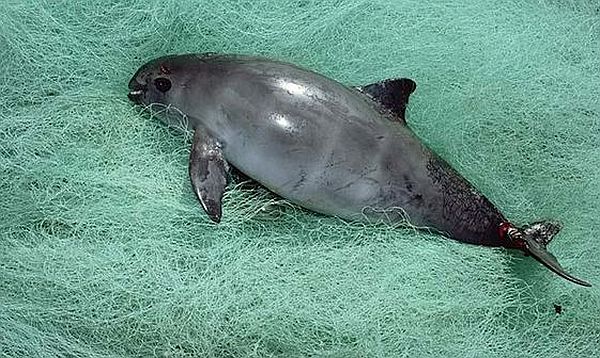In April, it looked like the world's smallest and most endangered porpoise was getting the help it needed from the Mexican government to avoid extinction.
 |
Fishers use the nets to catch another endangered species — the totoaba, whose bladder is coveted in China as a delicacy. Totoaba swim bladders reportedly fetch as much as $4,000 a pound for Mexican fishers, and a single bladder can sell for $15,000 in Hong Kong shops.
"Seventy percent of vaquita mortality is caused by illegal gill nets, so real control and enforcement is needed," said Greenpeace Mexico campaign manager Sylvia Díaz. "The Mexican authorities need to take it seriously and do their job."
 |
"We asked the Mexican government for a meeting" to discuss the lack of enforcement in the banned fishing zone, "and we are still waiting for a response," Diaz said.
In two separate investigations, Greenpeace activists in Hong Kong have discovered shopkeepers selling totoaba bladders they claim came from Mexico.
"We got the shop names, photo evidence, and video and gave all those materials to the Hong Kong government in May," said Greenpeace East Asia campaigner Bonnie Tang. "However, after two months, the government still has taken no action to inspect any of the shop owners."
So, Why Should You Care?
There were 200 vaquitas in the Gulf of California as recently as 2012, but the rising prices of totoaba bladders — thought to improve fertility and skin conditions when eaten — decimated the population to 97 individuals last year, with as few as 50 remaining in the wild today.
If something isn't done now to reverse the trend, the world's smallest cetacean could be extinct within three years. "The totoaba trade will not stop until the Hong Kong government takes action," Tang said. "Action taken will send a very large warning that shop owners should not have bladder trading anymore. If they don't, the extinction of the species is imminent."
Original article


